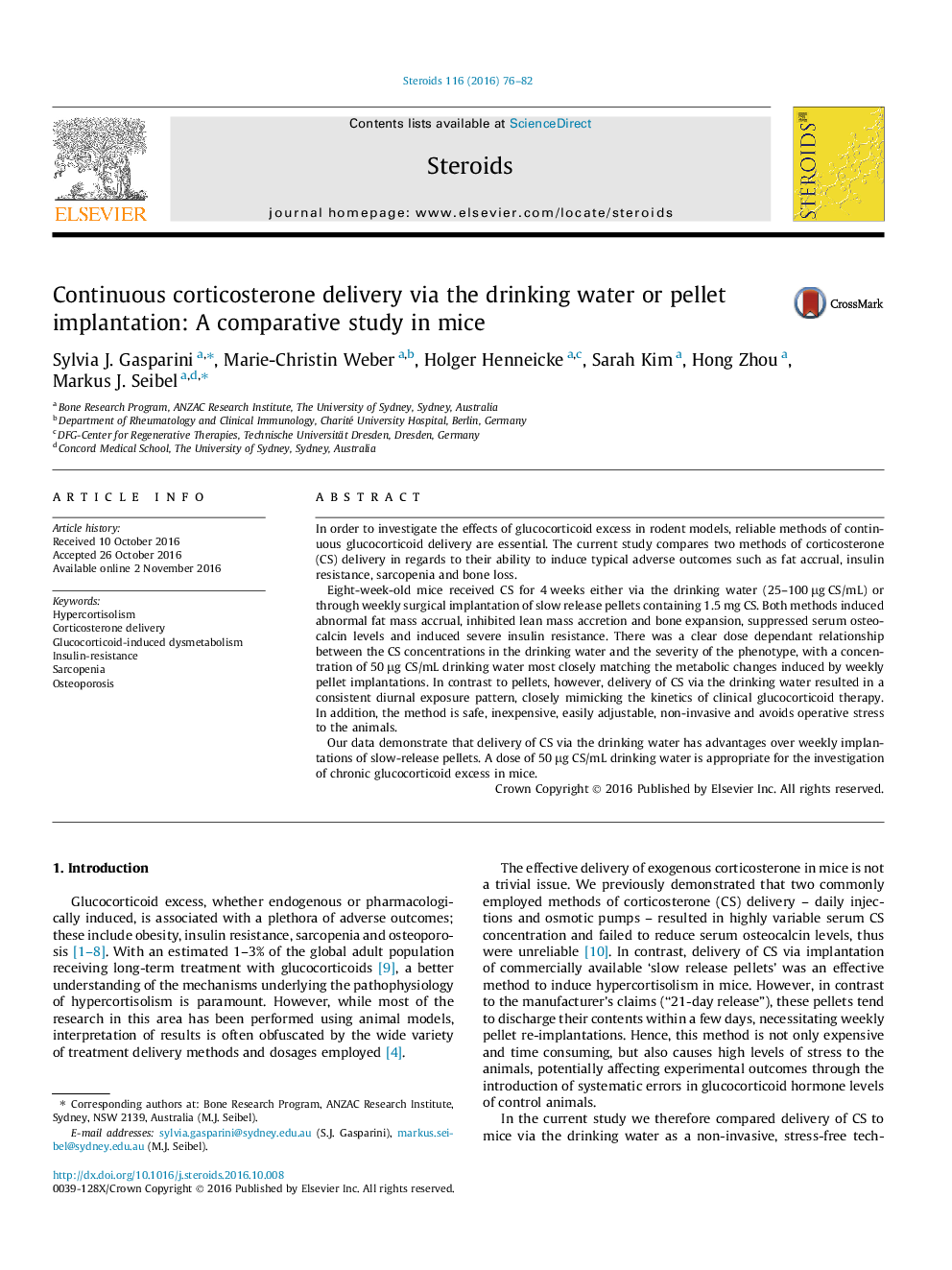| Article ID | Journal | Published Year | Pages | File Type |
|---|---|---|---|---|
| 5516754 | Steroids | 2016 | 7 Pages |
â¢Delivery of corticosterone via the drinking water is inexpensive and adjustable.â¢It is safe and non-invasive and thus avoids operative stress.â¢It closely mimics the kinetics of clinical glucocorticoid (GC) therapy.â¢It reproduces the changes in fat, bone and muscle seen with GC therapy in humans.â¢It is advantageous over the use of slow-release pellets.
In order to investigate the effects of glucocorticoid excess in rodent models, reliable methods of continuous glucocorticoid delivery are essential. The current study compares two methods of corticosterone (CS) delivery in regards to their ability to induce typical adverse outcomes such as fat accrual, insulin resistance, sarcopenia and bone loss.Eight-week-old mice received CS for 4 weeks either via the drinking water (25-100 μg CS/mL) or through weekly surgical implantation of slow release pellets containing 1.5 mg CS. Both methods induced abnormal fat mass accrual, inhibited lean mass accretion and bone expansion, suppressed serum osteocalcin levels and induced severe insulin resistance. There was a clear dose dependant relationship between the CS concentrations in the drinking water and the severity of the phenotype, with a concentration of 50 μg CS/mL drinking water most closely matching the metabolic changes induced by weekly pellet implantations. In contrast to pellets, however, delivery of CS via the drinking water resulted in a consistent diurnal exposure pattern, closely mimicking the kinetics of clinical glucocorticoid therapy. In addition, the method is safe, inexpensive, easily adjustable, non-invasive and avoids operative stress to the animals.Our data demonstrate that delivery of CS via the drinking water has advantages over weekly implantations of slow-release pellets. A dose of 50 μg CS/mL drinking water is appropriate for the investigation of chronic glucocorticoid excess in mice.
